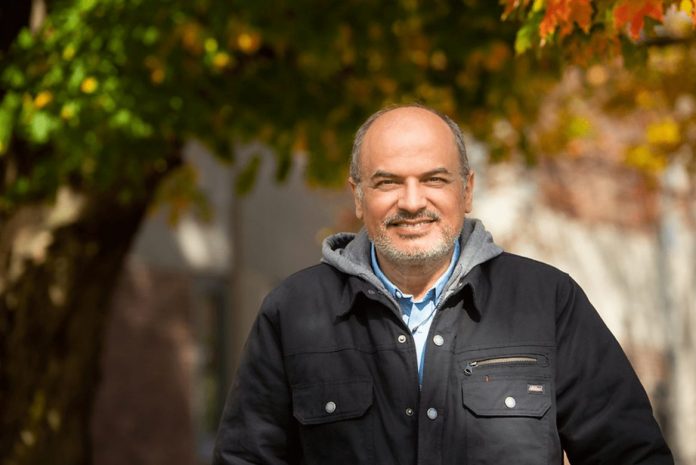Obstructive sleep apnea (OSA), a chronic disease involving the repeated collapse of the upper airway during sleep, causing a shortage of oxygen to the brain, can lead to serious health problems such as high blood pressure, heart disease, and stroke. Nearly 30 million American adults have obstructive sleep apnea, and 80 percent are undiagnosed, according to the American Academy of Sleep Medicine (AASM). Snoring and daytime sleepiness can be signs that an individual is suffering from sleep apnea, and treatment for the condition is available, but receiving a diagnosis is an essential first step.
To address this critical first step, Associate Professor of Computer Science Alaa Sheta, along with Associate Professor of Computer Science Shafaeat Hossain; Dr. Salim Surani, an adjunct clinical professor at Texas A&M University; and a team of researchers from the United States, Jordan, China, Palestine, and Saudi Arabia, have developed a new mobile application to aid in the diagnosis of OSA. The research team is currently collaborating with Torr Sleep Center in Corpus Christi, Tex., to collect various OSA datasets and explore the use of several machine learning approaches to develop prediction models for sleep apnea.
Sheta’s area of expertise is machine learning, a branch of computer science that focuses on using data and algorithms to imitate the way that humans learn.
Typically, diagnosis of OSA involves the patient having to undergo a sleep study, in which they spend a night in a sleep lab, with probes attached to their body and head. A technician monitors the patient as they sleep. The following day, the physician, and technician go over the study results and determine whether the patient has OSA and needs treatment.
Undergoing a sleep study is costly and time-consuming; thus, many individuals who suspect they might have sleep apnea are reluctant to undergo a sleep study, which means fewer patients with OSA are actually diagnosed.
Sheta says that in first talking with Surani about the process of diagnosing OSA a few years ago, he began to think that there must be an easier way for patients to be assessed for the condition and that a simpler method for diagnosing OSA could lead to more diagnoses and thus more patients receiving treatment.
In a research grant, “SAS mobile application for diagnosis of obstructive sleep apnea utilizing machine learning models,” Sheta and his team explored a wide range of human body features that play a role in diagnosing OSA, including weight, height, body mass index (BMI), hip, waist, age, and neck circumference. They developed a learning model to diagnose OSA, and Sheta suggested they deploy what they had as an app. The app is currently suitable only for the Android platform.
Through their findings, Sheta and his team aim to reduce the patient’s need to spend a night at a sleep laboratory so that the study of sleep apnea can take place at home.
A patient can directly enter the data into the app and get a diagnosis. Sheta says the app currently is 75 percent accurate, which “for the physician is great, but for me as a computer scientist, it’s not good enough.”
To continue his research and development of the app, Sheta had a successfully funded research grant, “Diagnosis of Obstructive Sleep Apnea: A Computer-Aided Tool Based on Deep Learning” by the START Preliminary Proof of Concept Fund, University of Connecticut (UCONN), made possible by a grant from the C.T. Next Higher Education Fund (CTNext), Connecticut, USA 2020-2021.
The research results were published at the 11th IEEE Annual Ubiquitous Computing, Electronics & Mobile Communication Conference (UEMCON2020) and the Applied Science Journal. Sheta was also interviewed about his research at the 2019 SAI Conference (Science and Information Conference).
With a research record of more than 150 conference and journal publications, six book chapters, and three books, Sheta is an associate editor of the International Journal of Advanced Computer Science and Applications (IJACSA) and the International Journal of Computational Complexity and Intelligent Algorithms.
Sheta published the mobile app under the Cognitive Computation and Machine Intelligence Laboratory (CCMIL) website at SCSU for possible use by both physicians and patients. The mobile app works on the Android platform. https://sites.google.com/site/profalaasheta/ccmil-lab/sleep-apnea


